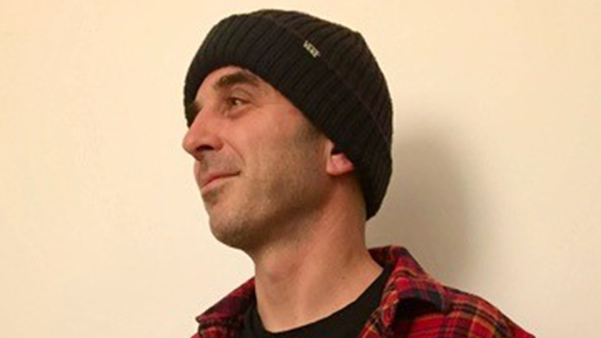
Annulato! Nanotechnology of cell communication seminario di Paolo Bergese del Dipartimento di Medicina Molecolare e Traslazionale dell'Università degli Studi di Brescia
A causa di problemi familiari il seminario di Paolo Bergese è rimandato a data da definirsi
Luciano Galantini è lieto di invitarvi al seminario di dipartimento:
Nanotechnology of cell communication
di Paolo Bergese
Department of Molecular and Translational Medicine, Università degli Studi di Brescia, Italy
Institute for Research and Biomedical Innovation (IRIB) CNR, Palermo, Italy
Italian Center for Colloid and Interface Science (CSGI), Firenze, Italy
National Inter-university Consortium of Materials Science and Technology (INSTM), Firenze, Italy
Il seminario si terrà in Sala Parravano giovedì 21 ottobre alle ore 13.00.
Il seminario potrà essere seguito in presenza registrandosi sul modulo https://forms.gle/7nG8sf9mMRj15sJq9 (il numero dei posti disponibili in Sala Parravano è limitato a 24 dalle misure di prevenzione e protezione dal contagio da COVID-19 indicate nei DPCM del 26/04/2020 e successivi e alle misure aggiuntive indicate dall'Ateneo.
È possibile partecipare anche da remoto su piattaforma Google Meet: https://meet.google.com/qcr-qtse-hrh
Abstract
Cells have been exploiting nanoparticles far much longer than we have in our labs. For example, we’re learning they secrete a great variety of nanoparticles into the extracellular space – which range from high-density lipoproteins of few nanometres to extracellular vesicles and fat globules of hundreds of nanometres – and use them as (nano)lines of communication to regulate/mediate key physiological and pathological processes. Either wild or engineered, extracellular nanoparticles (ENPs) are therefore entering in the running as breakthrough cell-free therapeutics, vaccines and fluid biopsy diagnostics. “Made by cells for cells”, they promise to bring to nanomedicine much-needed circulation and targeting abilities as well as intrinsic precision and sustainability. From a wider perspective, ENPs might constitute cell-assembled building blocks for future “biogenic” surface- and nanotechnology, such as the realization of hybrid biomimetic systems or cell synthesis from scratch. However, current knowledge of ENPs is fragmented and sectorial – most of the investigations being focused on a specific biological and/or medical aspect of a given ENP class – and their study and engineering are not supported by adequate understanding over their peculiar structural, colloidal and interfacial properties. The seminar will rationally introduce ENPs in a unified nanoscale framework, friendly outlining their (known) biology and (promised) translation and focusing on their (almost missing) surface- and nano-science.
Paolo Bergese

Paolo Bergese (April 4 1975) after a full marks MSc in Physics and a Ph.D. in Materials Engineering, moved in and grew up as a scientist at the bio-nano frontier, where he realized colloid and surface chemistry can raise and answer original biological questions.
Today he is Full Professor of Chemistry at the University of Brescia and Associate Researcher at the Institute for Research and Biomedical Innovation of the National Research Council (CNR) in Palermo. In 2010 and 2012 he has been visiting Professor at the Massachusetts Institute of Technology (MIT).
Totally fascinated by biogenic (extracellular) nanoparticles, he funded and heads the bioCSI – biogenic colloid surfaces and interfaces lab.at the Dep. of Molecular and Translational Medicine at the University of Brescia, a multidisciplinary team featuring one of the first stories of integration of chemistry, nanotechnology and molecular biology in extracellular vesicle research.
His scientific contribution is internationally recognized, counting > 90 papers and being granted in the framework of national and international projects on > 1.5 M€ in extramural funding. To date he coordinates two Horizon 2020 FET projects: evFOUNDRY – The extracellular vesicle foundry (http://www.evfoundry.eu/) and BOW – Biogenic Organotropic Wetsuits (https://www.bowproject.eu/).
As a student, he received in 2002 the European Materials Research Society (E-MRS) Young Scientist Award for research on Micro- and Nanocomposites.
He has tutored > 50 BSc, MSc, Ph.D. and post-doc students. In the present academic year, he is Secretary General of the MSc Degree in Medical Biotechnology, teaches General Chemistry (BSc in Biotechnology and School of Pharmacy), Nanochemistry (MSc in Medical Biotechnology), Pharmaceutical nanotechnology (School of Pharmacy) and is responsible for the integrated course of Principles of Biology and Biomedicine (BSc and MSc in Electrical and in Mechanical Engineering). He is also Secretary General of the Ph.D. School in Precision Medicine.
Full updated CV, publication list and links can be found at ORCiD: http://orcid.org/0000-0002-4652-2168.
